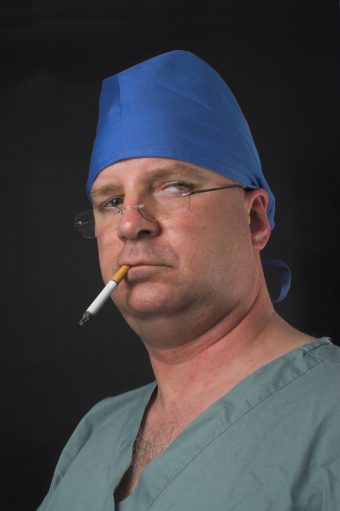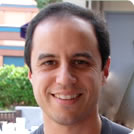 Steven Knope MD weighs in on concierge medicine, medical school, the future of healthcare, and doctors taking control of their careers.
Steven Knope MD weighs in on concierge medicine, medical school, the future of healthcare, and doctors taking control of their careers.
The television show Royal Pains explores the thrills, challenges, and adventures of Dr. Hank Lawson an Emergency Room Physician who, through a simple twist of fate, became a concierge medicine doctor. Though I’m not an avid fan, I have seen a few episodes and remember thinking, “Sure it makes for great television, but nobody really does that...right?” Well I was wrong. Enter Dr. Steven Knope MD; he has become a leader and innovator in the field of concierge medicine. A quick look at Dr. Knope’s biography and you realize he is part physican, musician, athlete, and ninja. His bio includes a stint as a professional french horn player, triathlete who has completed four ironman triathlons, and a martial artist with a 3rd degree black belt in Kenpo Karate. He is a physician who has always been willing to chart his own course and follow his passion to deliver the best health care possible to his patients. I was able to catch Dr. Knope in between seeing patients and practicing Chuck Norris round-house-kicks to pick his brain a bit; here is what I learned.
How did you get started doing Concierge Medicine?
I was actually asked to start a concierge practice by 4 of my patients 11 years ago. They wanted more of my time and more access to their physician. They liked my care, but they didn’t like having office visits limited to 10 minutes. They wanted a more personal relationship with their doctor. After they approached me with this request, my initial thought was that this type of practice model was “elitist” and “unethical." How could I limit patients access to my services to only the few who have the means to pay up front? These thoughts forced me to do a lot of reading and soul searching. I ultimately came to the conclusion that our current third-party system was in many ways unethical in it’s own right, and I decided I wanted to begin treating patients on my own terms. So, I started a pilot concierge program with just 4 patients, and it slowly grew into my present full-time practice.
What do you like best about being a concierge doctor?
I enjoy having the time to practice good medicine and the freedom from corrupt insurance companies, HMOs and the U.S. Government in the form of Medicare. In short, I am intensely individualistic, and I like practicing medicine on my own terms. For example, in addition to helping my patient when they are sick, all of my patients have a customized nutrition and exercise program. This type of freedom comes with a price, but I feel it is worth the price.
What does a day in the life of a Concierge Medicine Doc look like?
Every day is different, which is why I like it. In my old practice, I used to see 30 to 40 patients every day! It was mind-numbing. Every day was the same, and I was always running, always buried in trivial paperwork, always trying to meet my overhead – as Medicare, insurance companies and HMOs determined how much money I was allowed to make. If you like servitude, you’ll love third-party medicine. If you are an independent soul, you’ll need to get outside of this system.
What where some of the key lessons you learned while making the switch from a more traditional medical practice to becoming a concierge doctor?
You have to develop entrepreneurial skills that you never were taught in medical school. You have to learn to follow your own path and not pay attention to the crowd. You have to question some of the group-think mentality that was taught in medical school. As an example, I’ve publicly debated medical professors from academic centers on ObamaCare. These people pretend to be geniuses in the field, yet they can’t, or simply refuse, to do the simple arithmetic and see that Medicare and Medicaid are going bankrupt. It really does not take a genius to realize that ObamaCare is insane. They are ideologues, not thinkers. Learn medicine from your professors, because this is what they know best; but don’t internalize their liberal, socialized medicine dogma without thinking long and hard about it. It is just a simple fact that many academics could not run a private medical practice if they wanted to because they simply do not understand the first thing about making a payroll, paying an overhead, or the basics of “eating what you kill."
What is the best piece of advice you would like to give to today's aspiring doctors?
Think for yourself! Internal medicine and family practice has sadly become a bad job under the third-party system; there is just no other way to put it. It is almost no longer a profession. The word about primary care has gotten out to students, and very few young doctors are going into these areas of medicine. However, this means that there will be a shortage of primary care doctors, as the demand is continually increasing. There will be great opportunities for young doctors in these areas, provided that they are willing to go into direct practices, without the interference of third-party payers.
You have had some critics. What advice would you give to students on dealing with criticism?
Listen to the criticisms objectively, think about them, and then make your own decisions. If you think the criticisms are baseless, ignore them. It doesn’t matter what other people think of you. Period! Personally, I could give a rat’s ass about what other people think of me. I’ve written an entire chapter in my book, Concierge Medicine, on the ethical arguments on this topic. I happily challenge any doctor to debate me on the ethics of our current third-party payer system. The current system just doesn’t work. It is corrupt and unethical to its core. And if you think socialized, government-run medicine is the answer, reflect back on your experiences at any VA hospital. Does the government provide great care to our veterans? Not in my experience. Big government, big business, and crony capitalism are not the answers for our broken system. These things are what broke the system in the first place. We need to return to the days when doctors ran their own, small private practices if our goal is to provide compassionate, quality, personalized medical care to patients.
You seem to have a lot going in and out of medicine. How do you stay at the top of your game as a doctor while still maintaining an active balanced lifestyle?
I love medicine, but there is more to life than medicine. I’m a martial artist and an athlete. I believe that being physically and mentally strong makes me a better doctor. You only live once. You want to be more than a doctor in your short time on this planet. Be the person you want to be first; this will determine the kind of doctor that you become.
If you could recommend that every medical student read one book what would it be? (In addition to your book, of course)
Atlas Shrugged by Ayn Rand! Trust me on this one. It is a long book, but it will change your life. If you don’t have time to read it now, put it on your list and read it later.
More: Listen to an hour long interview with Dr. Knope from Medical Spa MD



 1 Uncommon Comment
1 Uncommon Comment






"I wouldn't do it twice, but I would not 'not' do it once."
- ZDoggMD